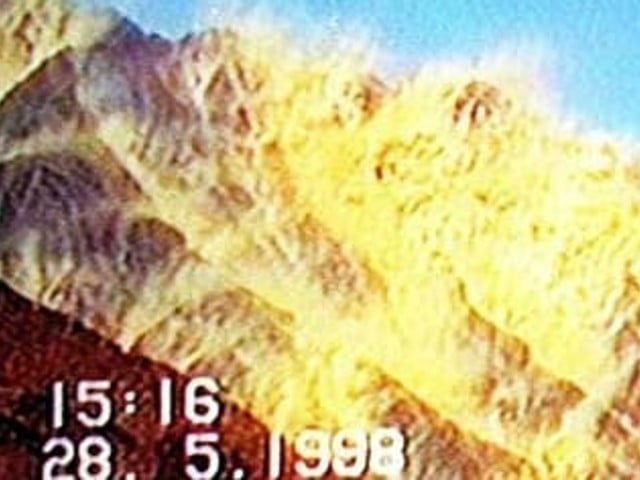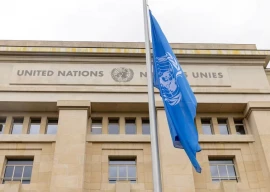
On the eve of Youm-e-Takbeer, the Advisor to National Command Authority (NCA) and former DG Strategic Planning Division (SPD) Lieutenant General (retd) Khalid Kidwai spoke on the evolution of Pakistan’s ‘full spectrum deterrence policy’ in recognition of Pakistan’s achievements within the field of nuclear deterrence, at the Islamabad Policy Research Institute (IPRI).
As part of his address, he also paid glowing tribute to all past civil and military decision-makers, as well as the silent workers who contributed to the development and operationalisation of Pakistan’s nuclear capability.
Kidwai said that Pakistan’s nuclear programme was predicated upon its defence needs, especially after the 1971 trauma and Indian sabre rattling in the wake of its nuclear explosion in 1974. “The nuclear capability was acquired for defensive purposes to offset the conventional forces’ asymmetry with India, a far bigger protagonist in the conflict equation,” he explained.
According to the speaker, Pakistan’s nuclear deterrence is fructified in the shape of nuclear command and control architecture featuring institutions like the NCA and SPD which deal with nuclear development and planning.
He went on to recognise that the planning and operationalisation of a triad of strategic forces comprising the Army, Air and Navy’s Strategic Force Commands, and the compliance with international safety protocols gave Pakistan a clear competitive edge over its adversary that is India.
“The concrete manifestation of the nuclear capability was the ‘Full Spectrum Deterrence’ that having graduated from ‘Credible Minimum Deterrence’ has started generating the desired strategic effects, inducing strategic dilemma and rethink amongst the Indian strategic community,” he said.
Published in The Express Tribune, May 29th, 2024.


1717587923-0/jake-paul-vs-mike-tyson-(1)1717587923-0-165x106.webp)


1725443747-0/Untitled-design-(5)1725443747-0-165x106.webp)












COMMENTS
Comments are moderated and generally will be posted if they are on-topic and not abusive.
For more information, please see our Comments FAQ